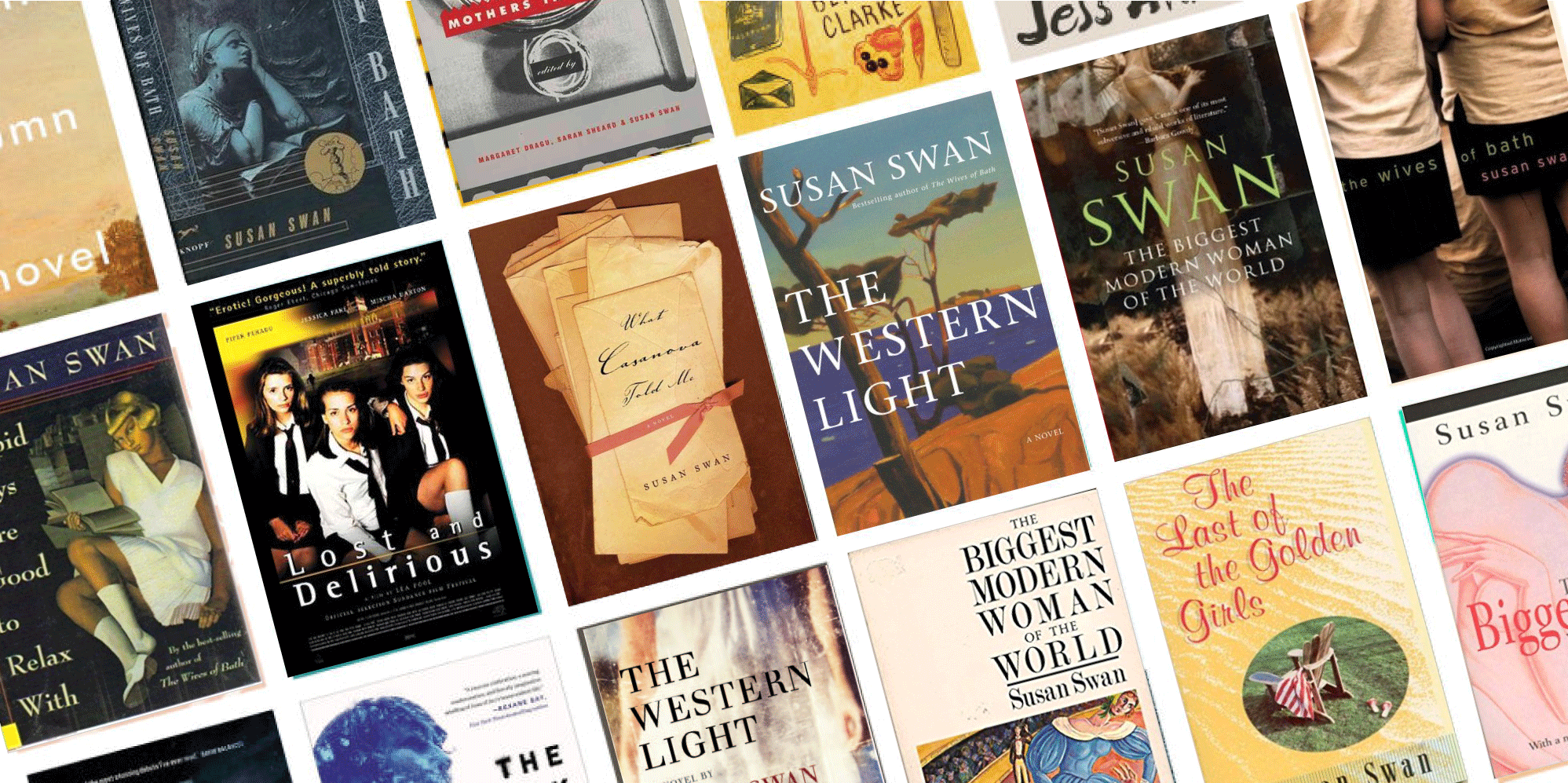BOAT TROUBLE Podcast

It’s been two years since I wrote a blog here. My excuse? I’ve been down a rabbit hole with my new novel, The Dead Celebrities Club, and I am only now coming up for air. This website is getting a face lift in October and I will start posting about Anxiety Pancakes: Life at the End of the Novel.
But right now I wanted to let you know that Accessible Media is airing a podcast this Sunday of my short story in the Walrus titled, Boat Trouble. AM is also broadcasting a short interview with me talking about the real life incident that inspired the story. That is, the summer night, my partner and I were out in an old wooden boat without a moon or proper running lights, lost like cijits (short for city idiots) in the Open, as the locals call the wide open water of the Georgian Bay.

Here is the pertinent info about the podcast:
The broadcast is this Sunday July 30 at 7pm Eastern time. It will be available on AMI-audio’s audio-only cable television channel (Rogers 196, Bell 49, Telus 889, etc) as well as on our online livestream at www.ami.ca/listenlive
This group also puts the shows up online as a podcast: you can search for “the Walrus with Lloyd Robertson” on iTunes or any other podcast program.
Read BOAT TROUBLE (published by The Walrus, summer 2017) BoatTrouble-WalrusPub
Anxiety Pancakes: Writing a Novel is like Building a House (Or Something)

“Wood-framed house” by Jaksmata – Own work. Licensed under CC BY-SA 3.0 via Commons
It’s back to the drawing board for me. My knowledgeable readers have spoken and said that the story in my novel doesn’t start moving early enough. I accept their views because I did what I said was necessary in my last post: I listened to them and I reread a good chunk of my manuscript myself.
Some writers have to complete each page perfectly before they move on to the next. But for me, writing a novel is like building a house. I do it in stages. First, the note making and research, and filling a large page with the names of some of the characters and a list of some of the scenes. Then I do the first draft on a tape recorder so I have something to work with–a blurt, as I call it. You get the gist. Down goes the floor but oops maybe I’ve forgotten to dig the foundations. And how about that missing roof?
A crucial stage is finding the voice. It took me almost a year to find the right voice for The Dead Celebrities Club. Now it seems I have been confusing the theme of my novel with the story and I need to go back, and streamline my prose so the story isn’t lost in my descriptions. That means throwing out some chapters and extraneous pages, something I find hard to do because I am the loyal type. If I’ve worked on passages until they glisten it breaks my heart to say good-bye although saying good-bye is what I must do.
I’ll put my discarded sections in a file so I can bring them out if I need them. That way these passages aren’t banished forever.
So I’m picking up my hammer and saw and possibly a wrecking ball. It’s time to get down to work.
Anxiety Pancakes: The Horror of Vulnerability
 I’m waiting for reactions from two very knowledgeable readers to the latest draft of my new novel, The Dead Celebrities Club.
I’m waiting for reactions from two very knowledgeable readers to the latest draft of my new novel, The Dead Celebrities Club.
The experience of waiting is like floating free in a void, as if I’ve been set adrift in the galaxy without a space station in sight. Adrift? Really? Yes, adrift in the sense that my identity seems to be on the line. Do I rely too much on my work for my sense of who I am? I do, I admit it, and I hate waiting for reactions to my writing. It makes me feel vulnerable and edgy.
Waiting on others is especially hard for someone like me. In the personality chart of the enneagram, I’m number eight, the challenger. A prominent trait of this personality type is taking charge of their circumstances. The basic fear of the challenger is being controlled by others. Being vulnerable, in other words. And feeling vulnerable is horrifying.
Yet vulnerability is the link to creativity. Without it, I would understand nothing about myself or my fellow humans. So I’m going to hang there in space and stay open to the help that others can give me with my book. Aren’t I?
Anxiety Pancakes: When Is A Novel Finished?

In the spring, I said I was finishing my novel, The Dead Celebrities Club, about a white collar fraudster who starts a betting game about old and frail celebrities in a US prison. My dreams told me I was on the home stretch. Well, it turns out there are home stretches and then some.
The first job with a novel is getting the voice of your character right and finding your story. After that, it’s anybody’s guess how many times you will revise your draft. Leonardo da Vinci said art is never finished, only abandoned and Paul Valery said the same thing about a poem. Writers have been talking about the need to abandon and not finish novels for a long time now.
But when is a novel finished? That is, what makes the writer decide it’s time to show it? When I began novel writing, I handed over my draft to an agent long before my book was done. I wanted my agent to find an editor who would help me finish it.
Today I hold onto my work much longer. Most editors are too busy to nurse along a work of fiction so sometimes the agent steps in and helps the writer finish their book before it is shown to publishers.
So when is a novel finished? Here’s a clue: When you show it to a few knowledgeable readers and they don’t say your book needs a lot more work. Key phrase––a lot more. Critical readers will always find something wrong; that’s their job. But if their comments resonate with you and the problems they spot are easily fixable, your novel may be close to being finished.
The other answer is your own reaction. Leave your novel for a month or so. Then go back and read it through. If you find it (mostly) surprises and pleases you, maybe it’s time to show it. Or you can always hug your manuscript close like Alistair MacLeod until somebody pries it away from you.
Riding through the Waves like Poseidon Scouting Out Film Locations


 On Labour Day Sunday, I rode through the waves like Poseidon with my brother John and the young film makers who are making a film of my last novel, The Western Light. It is set in a tourist town on the Georgian Bay.
On Labour Day Sunday, I rode through the waves like Poseidon with my brother John and the young film makers who are making a film of my last novel, The Western Light. It is set in a tourist town on the Georgian Bay.
We scouted out the lighthouse on Hope Island, part of a trio of huge wooded islands off Cedar Point on the Georgian Bay. The blue watery realm is so isolated that the physical experience of being there feels like drifting into a metaphysical dimension. This atmosphere is partly created by the lack of cottages or homes since the islands belong to the band on Christian Island. The film makers Hannah Cheesman and Mackenzie Donaldson took pictures and tried to imagine filming in such a rugged location. Unfortunately, the original top of the 1881 lighthouse had been replaced by a steel structure and light. Hannah is wearing a captain’s hat; Mackenzie is smiling into the camera.
These are Mackenzie’s photos, a taste, she says, of our afternoon on the water. The trip ended with a visit to the Waypoint Health Centre in Penetang, the old psychiatric hospital that is also in my novel. An old Georgian Bay lighthouse is also in the story.
Hannah and Mackenzie were just named two of the 2015 top five people to watch in Canadian film. Their short Boxing is at TIFF this September. The other producer Lauren Grant was home looking after her month old baby. Her most recent feature Wet Bum, which debuted at TIFF last year, was featured in a recent Globe and Mail article.
Film Deal for The Western Light with Upcoming Canadian Women Producers
Three young creative Canadian women film makers have come together to make a feature film based on the prequel to my international bestseller, The Wives of Bath. The prequel is The Western Light about Mouse Bradford, a precocious girl who is pushed to the brink when she mistakenly places her trust in an institutionalized ex-hockey star and convicted murderer, only to flee her small town and discover that goodness is more mysterious than evil.
The three film producers are Mackenzie Donaldson, an associate producer of Orphan Black, the hit television series about a cabal of cloned women and Hannah Cheeseman, script coordinator and an executive assistant on the Orphan Black series who together form Aberrant Pictures; and Lauren Grant of Clique Films who produced Wet Bum, a feature film with rising TIFF star Julia Sarah Stone. The women from top down in the photos inserted in my blog are Hannah Cheeseman; Mackenzie Donaldson and Laurie Grant.
Hannah will write the screenplay for The Western Light and play the part of Little Louie, Mouse’s aunt. Hannah also wrote the script and acted in “Whatever, Linda”, her newly released web series made with Orphan Black producer Mackenzie Donaldson. “Whatever, Linda” is an Internet Odyssey about an alleged secretary who is the mastermind behind Bernie Madoff’s Ponzi scheme. Lauren Grant was recently named one of 15 talents to watch by the Hollywood Reporter. I’m currently finishing my new novel, The Dead Celebrities Club.
The novel The Western Light was published by Cormorant Books in 2012 and The Wives of Bath (published in 1993) was made into the 2001 feature film “Lost and Delirious” shown in 32 countries and starring Jessica Pare, Mischa Barton and Piper Parabo.


 Kim Witherspoon of Inkwell Management handled the deal in association with Samantha Haywood of Transatlantic Agency.
Kim Witherspoon of Inkwell Management handled the deal in association with Samantha Haywood of Transatlantic Agency.
As Promised, Stories about Bad Decisions You Don’t Regret
A bad decision you don’t regret comes perilously close to a good decision although there is usually a lot more harrowing side effects than in a simple good decision, like helping the blind person pick up a dropped bag of groceries. And as promised, here are stories from my generous friends about bad decisions they don’t forget:

BAD DECISIONS YOU DON’T REGRET
Marrying the Wrong Guy:
Marrying my first husband at 24 was a bad decision because I wanted an interesting life in the arts and he wanted a conservative lifestyle and to hang out with the rich and cynical; yet it gave me my daughter Samantha. Now it’s impossible to imagine life without her. So I don’t regret my bad decision.
Choosing the Wrong Career:
Non-fiction author Bert Archer said choosing to be a writer was a spectacularly bad decision and yet he doesn’t regret it. Makes sense. The writing life is full of thrills and challenges even though the world seems to think that ‘content providers’ should work for nothing or next to nothing these days.
Marrying the Right Guy in the Wrong Career
Anita Dolman: I married another author although everyone said two writers together leads to rivalry and disaster. It’s tough being in a relationship with someone in your field. When that field is as competitive, as grant dependent, as tight for shelf space and spotlight space as writing is, it’s even harder. After lots of trial and error, my husband and I, struck a deal that we will never submit to the same magazine or grant for the same issue or grant cycle. We’ve been together 13 years, and I don’t regret it.
Picking the Wrong High School:
Thereza Dos Santos For me, choosing to leave all my friends behind to go to the more “reputable” high school was a bad decision I don’t regret. Years later I realized that going to high school with my childhood friends would have been more fun and just fine as far as my future was concerned. But going to a new school where I knew very few people probably helped give me the confidence I have now.
Stories about Bad Decisions You Regret and Bad Decisions You Don’t
Before my talk at Trampoline Hall on Monday, my friends on Facebook generously gave me stories about their bad decisions. The ones I’ve posted here are done with their permission and my thanks. The discussion on Monday night eventually asked the obvious question: what is a good decision? I suggest that a good decision is an act of self assertion that affirms who you are and respects the rights of others to be who they are. Anyway, drum roll–some slightly abbreviated stories about bad decision you regret–as they were told to me. (Tomorrow: stories about bad decisions my friends and myself don’t regret.)

BAD DECISIONS YOU REGRET
Letting Mom Down
Mary Paterson: My mother and I traveled to Toronto by bus from our hometown of Belleville. We spent the day together shopping, eating out, and went to the ballet. When it came time to leave in the early evening, there was only 1 seat left on the bus. I wanted to get back for a party so instead of waiting in Toronto with my mother, I took that 1 seat on the bus and left my mother alone to wait for the next bus which was hours later. My wonderful mother offered to stay back, and told me it was fine for me to go home without her, but she looked extremely sad. I ignored the feeling that I should stay with her instead of leaving for some stupid high school party. Shortly afterwards my mother was diagnosed with breast cancer. That selfish act of abandoning my mother to get to some party has stuck with me – I have always regretted it and by the way, said party has disappeared from my memory, which proves how lame it was. Today my mother is no longer alive, and I can describe the exact look of disappointment and sadness on her face as I sat looking at her through the bus window.
Letting Wishful Thinking Get the Best of You
Don Oravec At the age of 34, I decided I had had enough of Toronto and decided to retire and move to Montserrat in the British West Indies. What a great idea to escape the cold and snow and stress of Toronto life! Or so I thought. I bought a lovely oceanfront condo; however, I hadn’t counted on a category five hurricane hitting the island. It took a year of so to recover from the damages and by that time I decided Toronto wasn’t so bad after all and I moved back. A mere four months after selling my West Indian condo the long-dormant volcano erupted on the island.
Renting the Apartment from Hell
Cheryl Runke I took an apartment sight unseen. The former tenant was an animal hoarder. The floors were embedded with animal feces and urine. That was June 2014. I finally get to move out this Friday.
Listening to a Fast Talking Hubby
Natalee Caple My ex believed that he could guess the stock market — could figure out the likely futures of penny stocks. He was an excellent talker and I believed in him even when what he became convinced that investing in a little known stock based on an invention to sort cow sperm by gender would be a huge success. So I took all my money out of GICs and bought the cow sperm stock. It was a bad decision I really regret because the stock plummeted.
Failing to Estimate a Real Estate Risk:
John Oughton My ex and I decided to buy a country house together so our daughter would have a base to support her horse riding. Once she was in university, we intended to sell the house and make a few $$. After viewing many properties, we settled on one on the edge of a village next to a vacant lot. We were going to pay for the smallish mortgage by splitting the costs. A month later, my ex was diagnosed with breast cancer. She survived, but she has never been able to find full-time or well-paying work since. So I’ve been paying all the expenses on the house and its mortgage (which went up because I’d got into debt, and she needed cash due to her illness.) I still need to live in Toronto for work, so I am effectively paying two rents. The vacant lot next to us (which we didn’t bother to check out carefully) is zoned industrial because it was once a petroleum storage facility. No one can build a house there without having the soil all cleaned or replaced. Last year we finally got an offer on our country house, but it fell though because the prospective buyers didn’t want someone else to take over the nearby vacant lot and put up an industrial site, and they didn’t want to spend money fixing the environmental problems. Then, the church across the way doubled in size and developed a bad in-house rock band that rehearses loudly at odd hours…
Good Night, Descant–a Literary Gemstone for Four Decades
An old-fashioned newspaper columnist once told me that writing a daily column meant sacrificing his day to thinking up the next column. “It’s a bitch of a mistress,” he said. “She takes up every waking minute.” I don’t know what running a literary magazine entails exactly but I can’t help thinking it, too, is a bitch of a mistress, and that brings me to Karen Mulhallen who celebrated the last issue of Descant Magazine tonight with her staff and a packed house at the Supermarket in Toronto’s Kensington Market.

Karen has run Descant for over 40 years; as its editor-in-chief, she thought up the concepts, she found the staff and the funds (often from her own pocket) and she created a Descant community based on writers, artists, and people who walked in off the street and who had never heard of a literary magazine before along with dozens of young interns who often became Descant contributors after they left. Like many literary journals, Descant was not just a magazine; it was a community. But I don’t know any other journal that lets an intern become the production assistant who puts out the issue. Or that was so open to new writers. When I was teaching creative writing at York University, I used to tell my students to be sure to send their work there because the editors were watching for new talent and not just publishing their friends on the board.
Descant was also notable for its design flair and for its appreciation of creativity in general. Tonight Karen said the human brain was a cabinet of curiosities (the theme of its last issue, Number 167) and she told us she’d wanted the magazine to be a picture of the human imagination.
My own connection to Descant goes back to 1978 when Karen published an excerpt from my first novel, The Biggest Modern Woman of the World, about the giantess Anna Swan. It was my first literary publication and Karen ran the excerpt from my then unpublished book under the heading, A legend is born. I’d never met a literary magazine editor before or asked for funding support, which is what writers often ask of literary editors. So at my first meeting with Karen in her glamorous apartment on Washington Avenue near the University of Toronto, I was awestruck. She asked me how much money I wanted and I said, As much as you’ve got! She laughed and scolded me. That wasn’t the way to ask for money, she said, and told me to come back with a carefully worded budget. I did what she said. As many, many writers before or since have done.
Descant, number 167, is on sale at some bookstores and it is the last issue of a literary gemstone. For those who want to say good-bye to the magazine there will be a wrap part March 25 at Revival in downtown Toronto. The photograph here is of Kay Armatage, U of T prof and former TIFF programmer, reading from her essay about women’s film festivals in this issue.
Thank you, Karen, and thank you Descant for helping not only my generation but many generations that followed to find our voices.
Talking to Orillia Writers on February 22–Come if you’re in the hood
 I’m giving a writing workshop in Orillia on February 22. Come if you’re in the area. You can find out more information from The Writers’ Community of Simcoe County http://simcoewriters.ca/simcoe/news/ Here’s some of the information about my workshop published on their website
I’m giving a writing workshop in Orillia on February 22. Come if you’re in the area. You can find out more information from The Writers’ Community of Simcoe County http://simcoewriters.ca/simcoe/news/ Here’s some of the information about my workshop published on their website
IS YOUR WRITING DEAD OR ALIVE?
It’s a compelling issue in the craft of writing. This February 22nd Toronto novelist Susan Swan will focus on how to make your work live on the page. Swan has been a published author and creative writing teacher for over 30 years and she can show you some of the professional techniques she’s used in her own fiction, which has been published to acclaim in sixteen countries.
BONUS: WCSC Workshop participants are encouraged to send up to 12 pages of their own prose two weeks before the workshop.
More information about writing is available on her website www.susanswanonline.com Be sure not to miss her website blogs on Anxiety Pancakes: Life in the Middle of a Novel.
Bio: Journalist, feminist, novelist, activist, teacher, Susan Swan’s impact on the Canadian literary and political scene has been far-reaching. Her critically acclaimed fiction has been published in sixteen countries. Susan Swan’s new novel, The Western Light, was published in the fall of 2012. It shares a narrator with her international bestseller, The Wives of Bath. The Western Light was nominated as one of the best books of 2012 fiction and non-fiction by the Ontario Library Association. A feature film based on The Wives of Bath was released in the summer of 2001 in the U.S. and Canada under the title Lost and Delirious. The film was written by Judith Thompson and starred Mischa Barton, Piper Parabo and Jessica Pare. It was shown in 32 countries and picked for premiere selection at Sundance and Berlin Film Festival 2001.
Leave a comment


